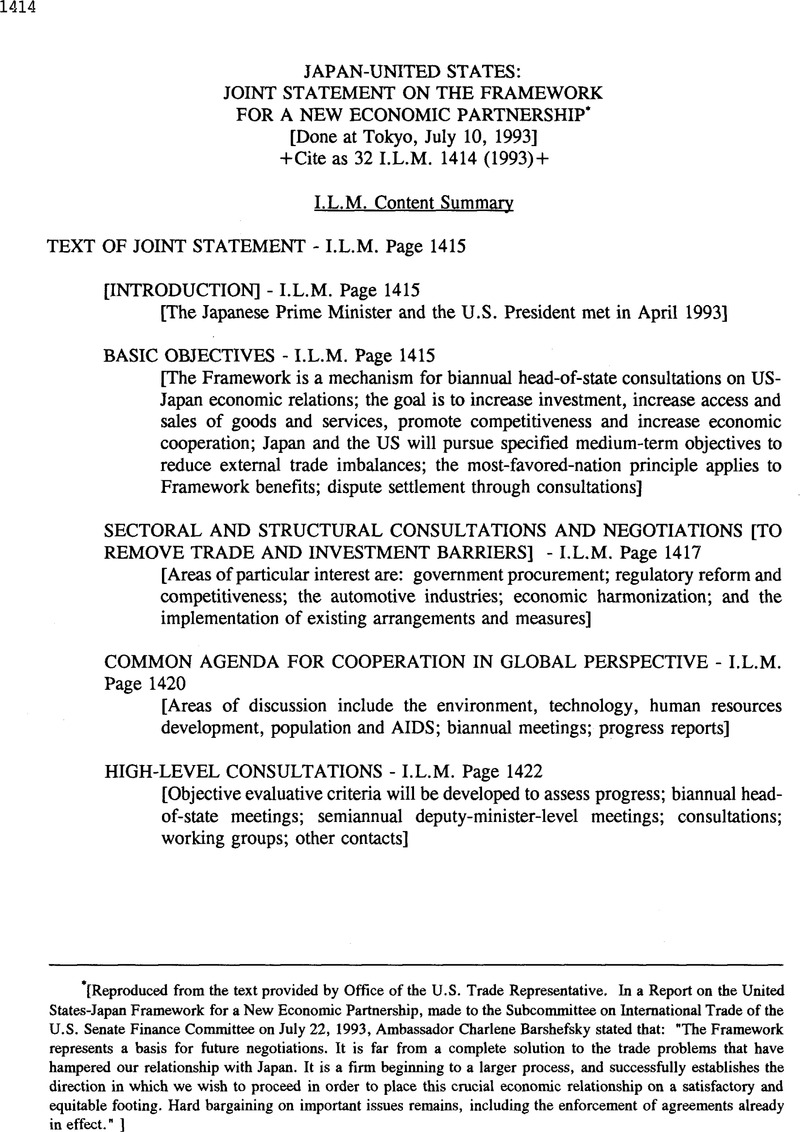No CrossRef data available.
Published online by Cambridge University Press: 18 May 2017

[Reproduced from the text provided by Office of the U.S. Trade Representative. In a Report on the United States-Japan Framework for a New Economic Partnership, made to the Subcommittee on International Trade of the U.S. Senate Finance Committee on July 22, 1993, Ambassador Charlene Barshefsky stated that: “The Framework represents a basis for future negotiations. It is far from a complete solution to the trade problems that have hampered our relationship with Japan. It is a firm beginning to a larger process, and successfully establishes the direction in which we wish to proceed in order to place this crucial economic relationship on a satisfactory and equitable footing. Hard bargaining on important issues remains, including the enforcement of agreements already in effect.”]
* [Reproduced from the text provided by Office of the U.S. Trade Representative. In a Report on the United States-Japan Framework for a New Economic Partnership, made to the Subcommittee on International Trade of the U.S. Senate Finance Committee on July 22, 1993, Ambassador Charlene Barshefsky stated that: “The Framework represents a basis for future negotiations. It is far from a complete solution to the trade problems that have hampered our relationship with Japan. It is a firm beginning to a larger process, and successfully establishes the direction in which we wish to proceed in order to place this crucial economic relationship on a satisfactory and equitable footing. Hard bargaining on important issues remains, including the enforcement of agreements already in effect.”]